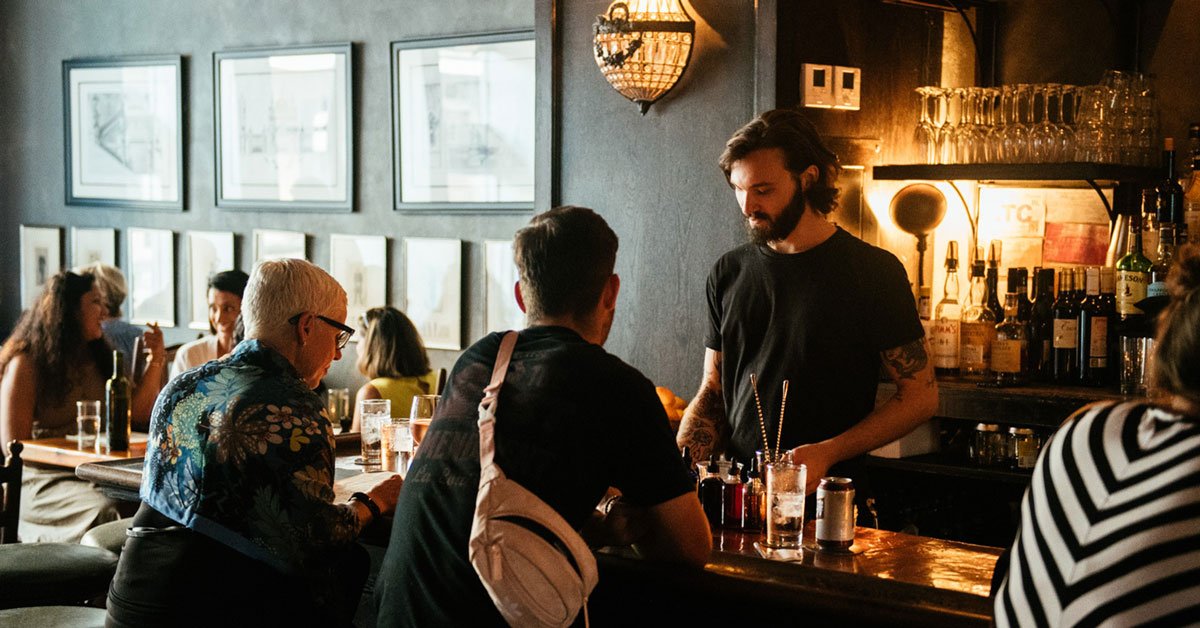Parental leave coverage in America is woefully inadequate, made even more obvious within the service industry. According to data from the Bureau of Labor Statistics, only 16 percent of service workers have access to paid family leave, the lowest of the occupation types surveyed, despite making up the third-largest employee segment in the country. Relatedly, food service workers have the lowest median tenure at just 1.6 years.
The pandemic brought this into focus for restaurant groups like New Orleans-based LeBlanc + Smith (The Chloe, Sylvain, Barrel Proof), which saw people leaving the industry in droves to get better health benefits. Workers were also surrendering management and leadership roles when they became parents. Five years ago, the group started researching how to offer paid parental leave to their staff and instilled a plan in 2024 in partnership with hospitality consultants Oyster Sunday and its program OS Benefits. Here, LeBlanc + Smith’s director of people, Ali Grieb, discusses that process and why it’s better for the group’s bottom line.
This is an excerpt from our newsletter for the industry, Pre Shift. Subscribe for more stories like this.
“Though offering parental leave has always been on my mind, post-COVID, I was working really closely with Oyster Sunday trying to figure out how to get all our properties reopened. We were talking about how so many people were not coming back to the industry. So [we asked ourselves] what is the difference between LeBlanc + Smith and the rest, and how are we going to get this small pool of people to choose us?
In the last two years, it’s become abundantly clear that we want to find a way to make people stay long-term, to develop careers. We want to invest in the team in a strategic way, but one that doesn’t impact cash flow too much. We came up with a way to offer affordable health benefits. With regular health plans that have super high premiums, you’re paying for worst-case scenario hospital stuff at 100 percent. Rather than offering one-size-fits-all plans that [our staff] wouldn’t use, we offer more affordable, fringe benefits they will actually use, [things like] access to mental healthcare, being able to see a specialist. Because that part of health insurance costs came down, for tenured employees, we’re able to offer paid parental leave. We saved 34 percent on health insurance before and after instilling this policy. So it’s really just a P&L balancing act.
Currently, we give hourly team members $1,200 and two weeks off and, for salaried team members, we provide two weeks paid outside of PTO. At The Chloe, we’ve had a server and two bartenders take us up on this, including fathers who took time to support their wives. We also are always trying to organize a Meal Train and the teams are so willing to lean into their teammates. By no means am I saying that $1,200 and some casseroles [saves parents] from difficulties, but it’s a way to say your team is taking care of you, and we wish you well.
People—especially back of house, but front of house too—are preconditioned to believe that they signed their life away when they step into management. There needs to be a paradigm shift in the hospitality industry [around that]. We certainly do not have it all figured out, but the larger issue that we had to fix was just creating a safer space for women to grow into leadership roles [while being able to start a family if they want]. We’ve started to try to communicate more with people, asking ‘What do you want?’ [Our benefits] also offer unlimited mental health services, family planning resources, tools to help reintegrate back into the work force after leave, and a free membership to [child care site] UrbanSitter.
We are profitable because of [our workers] showing up and choosing us. Recruitment is so expensive. If we’re keeping people, then we’re winning. I’m really grateful because now I’m not spending a billion dollars on Indeed every day. I can’t remember the last time that we’ve had to get on Culinary Agents and really hustle to find some people. We’re getting to this place where there’s unforeseen cost savings in retention and word-of-mouth recruitment. New Orleans [where 1 in 7 people are in the service industry] is a wild city to recruit in because it’s very small and tight-knit. We’re like one big cafeteria room. But recruitment has changed since we started [offering paid leave]. Currently, 68 percent of our employees have been here for more than two years, and we’re really proud of that.”
—Ali Grieb, as told to Eater and Punch managing editor Jess Mayhugh




